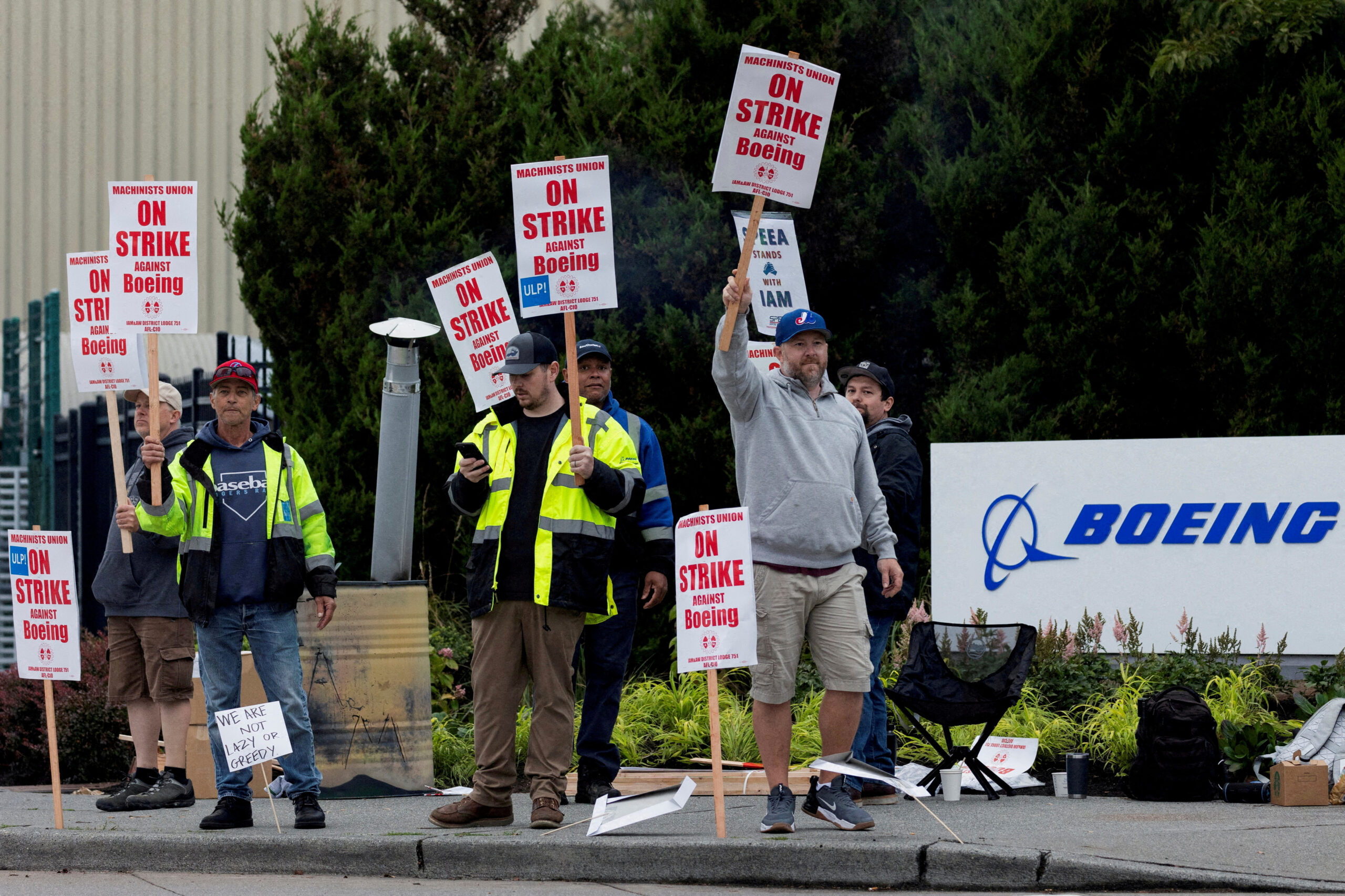New York — In a pivotal moment for American labor relations, Boeing employees have officially concluded their strike, voting to accept a revised contract after a record-breaking 25-year standoff. The vote, conducted by the International Association of Machinists (IAM), saw 59% of union members approve Boeing’s latest offer, signaling a hard-fought end to a strike that has reverberated across the economy, affecting everything from airline operations to Boeing’s own supply chain.
This acceptance follows two earlier rejections by Boeing workers, who in recent weeks demanded better wages and benefits, rejecting previous offers by decisive margins. Union leaders expressed pride in the members’ resilience and determination, highlighting their commitment to standing firm until Boeing offered a contract worthy of their work. Jon Holden, president of the largest IAM local at Boeing and a lead negotiator, celebrated the agreement, acknowledging the workers’ perseverance and readiness to return to their jobs. “This is a well-earned victory,” he stated, “Our members have achieved a lot through their resilience.”
The new contract offers workers an immediate pay increase of 13%, followed by 9% raises in each of the following two years and 7% in the fourth year. Additionally, Boeing employees will receive a ratification bonus of $12,000, which they may partially allocate to 401(k) retirement accounts. The increase in wages marks a significant improvement in workers’ conditions, addressing a critical issue in the contract negotiations. Despite these gains, the union’s goal of restoring a defined benefit pension remains unmet. Holden acknowledged that the absence of this traditional pension continues to be a sticking point, particularly for the 41% of members who voted against the deal. Nevertheless, he vowed that the union would persist in advocating for retirement security, emphasizing that all workers deserve a fair and stable future.
Boeing’s leadership, too, acknowledged the challenges posed by the strike. CEO Kelly Ortberg, who took on his role just weeks before the strike began, expressed optimism about the road ahead, recognizing the value of the employees’ contributions. “While the past months have been difficult for all of us,” Ortberg said, “we are united as a team. Together, we can return to the excellence that defines Boeing.” Ortberg’s commitment to “reset” relations with the union signals Boeing’s acknowledgment of the critical role its workforce plays in driving innovation and success.
The economic impact of the strike has been extensive, with Boeing losing an estimated $6.5 billion, according to the Michigan-based Anderson Economic Group. Workers, meanwhile, lost more than $600 million in wages, creating hardship for many families. The ripple effects reached Boeing’s vast network of suppliers, which spans 50 states, resulting in layoffs and temporary work stoppages. Boeing’s significance to the economy cannot be overstated: it stands as the United States’ largest exporter, contributing an estimated $79 billion annually and supporting approximately 1.6 million jobs.
The strike also affected commercial airlines, which faced delays in receiving new planes. These delays compounded existing supply chain challenges, impacting fleet expansions and travel schedules. For Boeing, the strike’s conclusion provides a chance to regain its footing and re-establish stability after years of turbulence, including the prolonged grounding of its 737 Max fleet.
As production resumes, Boeing and its employees have a shared interest in restoring the company’s reputation for excellence. The contract represents a historic achievement for Boeing workers, whose commitment to fair treatment and safety standards has set a high bar for labor negotiations across the industry. As workers return to production lines, the spotlight remains on Boeing’s leadership to honor its promises and strengthen relations with its workforce, paving the way for an era of renewed collaboration and growth.









